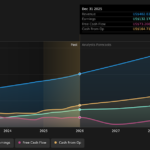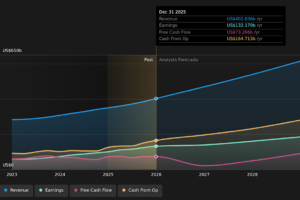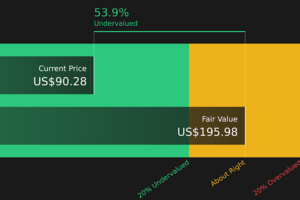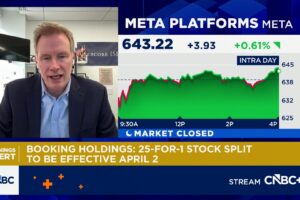
Attention Wall Street Bettors: The taxman is coming for your tendies.
Though stocks like GameStop GME, -44.29% and AMC AMC, -56.63% are on wild rollercoasters, powered by support for the stocks on retail investor forums like Reddit’s WallStreetBets, it’s uncertain how the surge will play out in the end.
By Thursday’s market close, GameStop shares were up 927% year to date, while AMC shares were up more than 300% year to date on a day when Robinhood restricted trades on the two companies. Later in the day, Robinhood said it would authorize “limited buys” in the companies starting Friday. Gamestop shares dropped 44% and AMC Entertainment fell 57% during Thursday’s trading day.
Here’s what is certain: You will be taxed on your gains — those are the so-called “tendies” for anyone uninitiated to WallStreetBets-speak — and there’s only so much of a loss you can write off for tax purposes.
“It’s been an odd week and a half,” said Galen Herbst de Cortina, a financial planner who founded Buff of Finances, a firm catering to professional video game players. Some of them play the market too. Now the people on Herbst de Cortina’s Twitter TWTR, +7.01% gaming feed and his clients are “talking about the same thing” — what to make of and whether to get involved in stocks like GameStop.
Some of Herbst de Cortina’s clients ask him if it’s “completely crazy” for them to spend money in the market now (he advises them using only a small bit they’re comfortable losing) while others have been asking him about the tax implications.
When it comes to investment ideas, “taxes are usually an afterthought, though usually they should be more part of the decision-making process,” Eric Bronnenkant, head of tax at Betterment, a robo advisor. Investment decisions don’t need to be pegged to tax implications, he said, but at least knowing the rules, like when more favorable tax rates apply, can help an investor proceed.
Whatever happens with stocks like GameStop and AMC, many new investors are already poised to get an up-close look at tax treatment on trading.
Beginning Feb. 12, people can file their income taxes on their earnings in 2020. During that time, consumers opened more than 10 million new brokerage accounts, according to the Wall Street Journal. By now, brokerage firms should be distributing the tax paperwork account holders will need for the upcoming tax season, Herbst de Cortina said.
Of course, tax rules on the sales, gains and loses occurring right now will only apply in next year’s tax season. But here are some points to keep in mind going forward.
Tax rules if you turn a profit
If you turn a profit on your trades, the feds are going to want a cut. How much they’ll take depends on how long you’ve held the asset before the sale.
So suppose you buy and sell one buzzy stock within one year. That counts as a short-term capital gain and it’s taxed as ordinary income. Ordinary income is taxed on the sliding rate scale depending on what you earn in a year, running from 10% to 37%.
But if you sell that stock at least one year after you buy it, the long-term capital gains rate applies. And it’s a lot lower.
There’s 0% rate if you’re single and make under $40,400, and it’s $80,800 for a married couple filing jointly. After that, it’s 15% for income limits up to $445,850 for individuals and $501,600 for married couples filing jointly.
For example, Bronnenkant said, if a person buys an asset on Jan. 28, waits a full year and sells it on Jan. 29 the next year, the lower, long-term rate will apply.
Tax rules if you book a loss
Some observers watching the wild ride say it’s not going to end well, drawing parallels with the dot-come bubble of the late 1990s.
If you end up losing money in the market once 2021 is complete, you do have tax provisions at your disposal. But there’s a limit how far they go.
Unless you qualify as a day trader in the eyes of the IRS — a steep challenge — as an investor, you can only subtract up to $3,000 from your ordinary income for capital loses.
Bear in mind, Herbst de Cortina said, you can offset your short-term capital gains with your short-term capital loses. And the same goes for long term capital gains and loses, he added.
In other words, if a person makes a $5,000 profit on some stocks , but ends with $5,000 loss on others and those wins and loses are both held under a year, or over a year, it ends up making no difference on your tax bill.
But if you turned a $5,000 profit in some sales, but ended with a $10,000 lose elsewhere, you still have a $5,000 loss to deal with.
That’s where the capital loss limitation comes in. Then you can deduct another $3,000 from your ordinary income. That still leaves a $2,000 sum the tax code can’t help you out with during one filing year. The loss can be carried forward to next tax year and applied then.
There’s another capital loss tax rule to know about. It’s called the “wash sale rule.”
The IRS won’t let you sell a stock at a lose and buy the same stock or a “substantially identical” one 30 days before or after the sale. By doing that, an investor gives up the chance to apply that loss on their capital loses, one expert previously told MarketWatch.
The recent mania, however, is kicking up prices and investor attention on shares in a range of industries. GameStop is a videogame retailer and AMC is a movie chain.
If someone pivots from a potential loss on one of those stocks to another, “you could hardly argue those are similar companies,” Herbst de Cortina said.










